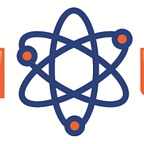Empowering Kubernetes Logging with the EFK Stack: A Guide with Fission Labs Expertise
Introduction
Effective log management is crucial in Kubernetes deployments, and the EFK stack (Elasticsearch, Fluentd, Kibana) stands out for its capabilities. In this guide, we’ll explore the benefits of centralized logging and dive into the prerequisites and steps to implement the EFK stack in Kubernetes environments.
Why Embrace EFK for Your Kubernetes Logging?
Let’s dive into the compelling benefits it offers for your Kubernetes environment:
Centralized Visibility and Insights
Say goodbye to scattered logs in individual containers! EFK centralizes logs from your entire Kubernetes cluster, offering a unified view of application behavior and system health. This empowers you to identify trends, detect anomalies, and troubleshoot issues across your entire infrastructure effectively.
Streamlined Troubleshooting and Debugging
Sifting through individual container logs can be time-consuming and inefficient. EFK’s powerful search and filtering capabilities allow you to pinpoint specific events or errors across your entire system, significantly reducing troubleshooting time and effort.
Enhanced Performance Monitoring
Performance issues often manifest in seemingly unrelated log entries. EFK’s ability to correlate logs with metrics from other monitoring tools enables you to identify performance bottlenecks and optimize resource allocation for efficient application operation.
Scalability and Flexibility
The EFK stack scales seamlessly to accommodate growing containerized environments. Its open-source nature allows for customization and integration with diverse tools and platforms, providing a future-proof logging solution.
Security and Compliance
Security breaches often leave traces in logs. EFK’s centralized storage and access control features strengthen your security posture by enabling log analysis for suspicious activity and ensuring compliance with security regulations.
Proactive Problem Detection and Prevention
Monitoring historical logs with EFK helps you identify recurring issues and patterns. By leveraging these insights, you can proactively address potential problems before they impact your system, ensuring application stability and preventing downtime.
Operational Efficiency and Collaboration
Having a centralized log platform like EFK fosters collaboration among teams. Developers, operations, and security personnel can access and analyze logs from a single source, leading to faster incident resolution and improved understanding of the overall system health.
The EFK stack offers a comprehensive and efficient solution for log management in Kubernetes environments. By embracing its capabilities, you unlock valuable insights, streamline operations, and gain complete control over your containerized infrastructure’s health and performance. Consider making the switch to EFK and experience the numerous benefits it has to offer!
Before jumping into EFK implementation, ensure the following prerequisites.
Prerequisites
To set up the EFK (Elasticsearch, Fluentd, Kibana) stack for centralized logging in Kubernetes, several prerequisites must be met:
Kubernetes Cluster: Access to a running Kubernetes cluster where applications generate logs.
Elasticsearch Cluster: Set up or access an existing Elasticsearch cluster, including URL and authentication credentials.
Kibana: Install and configure Kibana for log visualization, requiring the Kibana URL for access.
Fluentd Docker Image: Access to a Docker image containing Fluentd with necessary plugins and configurations.
Fluentd Configuration: Prepare Fluentd configurations for log collection and forwarding, defining input sources, output destinations, and any required filtering or transformations.
Network Connectivity: Ensure Kubernetes cluster nodes can communicate with Elasticsearch and Kibana endpoints, with necessary network policies or firewall rules in place.
Security Configuration: Implement security measures such as Elasticsearch security features, SSL/TLS for data transit, and access control for Kibana.
Resource Allocation: Determine resource requirements for Elasticsearch, Fluentd, and Kibana based on expected log volume and performance needs, allocating CPU and memory resources accordingly.
How Fission Lab Engineers Can Help
At Fission Labs, our team of experienced engineers possesses the expertise to guide you through every step of implementing and optimizing the EFK stack for your specific needs. From initial architecture design to ongoing maintenance and training, we can ensure your Kubernetes logging is robust, efficient, and empowers you to make informed decisions about your applications and infrastructure. Here’s how we can assist:
Architecture, Design, and Implementation
Our engineers collaborate with your team to design an EFK architecture tailored to your specific requirements, considering factors such as log volume, performance needs, and scalability. We assist in the seamless implementation of the EFK stack, ensuring all components are deployed and configured correctly to meet your logging objectives.
Customization and Configuration
Using our expertise, we tailor Fluentd configurations to your specific log collection and forwarding requirements. We help you configure Elasticsearch indices, Kibana visualizations, and dashboards to align with your organization’s logging and monitoring objectives.
Performance Optimization
Our engineers evaluate the performance of your EFK stack, identifying bottlenecks and potential improvements. We employ best practices to enhance resource allocation, index management, and query performance, resulting in more efficient log processing and visualization.
Security Enhancements
We prioritize security and work to improve your EFK stack’s security posture by implementing access controls, encryption, and authentication. Our team conducts security audits and makes recommendations to mitigate potential vulnerabilities and ensure industry compliance.
Monitoring and Maintenance
We offer ongoing monitoring and maintenance services to ensure that your EFK stack is reliable and performs optimally. To avoid downtime and data loss, our engineers constantly monitor system health, troubleshoot problems, and perform routine maintenance.
Training and knowledge transfer
We offer comprehensive training sessions on EFK stack management and best practices to provide your team with the skills and expertise they need. We facilitate knowledge transfer sessions to ensure that your team is prepared to handle day-to-day operations and troubleshooting tasks on their own.
Conclusion
Centralized logging unlocks a treasure trove of insights into your Kubernetes environment, leading to streamlined operations, enhanced security, and proactive problem-solving. The EFK stack, with its powerful combination of Elasticsearch, Fluentd, and Kibana, offers a robust and flexible solution for log management.
However, navigating the complexities of implementation and optimization can be challenging. That’s where Fission Labs comes in. Contact Fission Labs today! We’ll guide you through every step and help you harness the power of the EFK stack to gain complete control over your containerized infrastructure.
